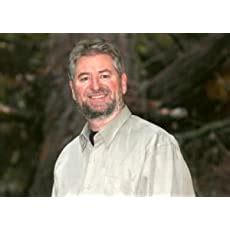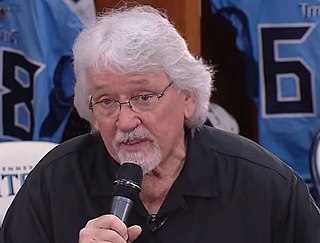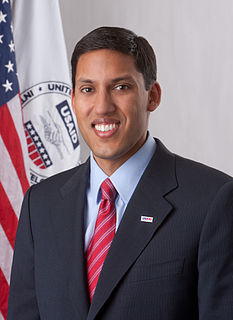A Quote by Prince Charles
Scientists themselves readily admit that they do not fully understand the consequences of our many-faceted assault upon the interwoven fabric of atmosphere, water, land and life in all its biological diversity. But things could also turn out to be worse than the current scientific best guess. In military affairs, policy has long been based on the dictum that we should be prepared for the worst case. Why should it be so different when the security is that of the planet and our long-term future?
Quote Topics
Admit
Affairs
Also
Assault
Atmosphere
Based
Be Prepared
Been
Best
Biological
Case
Consequences
Could
Current
Different
Diversity
Fabric
Fully
Future
Guess
Interwoven
Land
Life
Long
Long-Term
Many
Military
Our
Out
Planet
Policy
Prepared
Readily
Scientific
Scientists
Security
Should
Should I
Term
Than
Themselves
Things
Turn
Understand
Water
Why
Worse
Worst
Related Quotes
All the real money in investment will have to be made as most of it has been in the past not out of buying and selling but out of owning and holding securities, receiving interests and dividends therein, and benefiting from their long-term increases in value. Hence stockholder's major energies and wisdom as investors should be directed toward assuring themselves of the best operating results from their corporations. This in turn means assuring themselves of fully honest and competent managements.
Wisdom is not developable, as if it's a matter of luck or personality or genetics. Well it's just not the case. Wisdom involves our accumulated knowledge about a subject but also a reverence for life, for an understanding that our immediate actions have long-term consequences, and for an appreciation that there are different ways of knowing and understanding situations.
Only within the 20th Century has biological thought been focused on ecology, or the relation of the living creature to its environment. Awareness of ecological relationships is - or should be - the basis of modern conservation programs, for it is useless to attempt to preserve a living species unless the kind of land or water it requires is also preserved. So delicately interwoven are the relationships that when we disturb one thread of the community fabric we alter it all - perhaps almost imperceptibly, perhaps so drastically that destruction follows.
I also want to raise the possibility that there are, in the very long term, "virtue effects" in economics- for instance that widespread corrupt accounting will eventually create bad long term consequences as a sort of obverse effect from the virtue-based boost double-entry book-keeping gave to the heyday of Venice. I suggest that when the financial scene starts reminding you of Sodomand Gomorrah, you should fear practical consequences even if you like to participate in what is going on.
What does purpose mean? It means the deepest desire for our short lives to mean something. . . . To speak a language of purpose is to return to first principles and to be able to answer, in plain English, the plain questions of Why? Why should we chip in to help someone else? Why should we defer gratification? Why should we care about the long term? Why should we trust anyone who seems to be limiting our ability to do what we want?
Human existence may be simpler than we thought. There is no predestination, no unfathomed mystery of life. Demons and gods do not vie for our allegiance. Instead, we are self-made, independent, alone, and fragile, a biological species adapted to live in a biological world. What counts for long-term survival is intelligent self-understanding, based upon a greater independence of thought than that tolerated today even in our most advanced democratic societies.
From the day I took office, I've been told that addressing our larger challenges is too ambitious; such an effort would be too contentious. I've been told that our political system is too gridlocked, and that we should just put things on hold for a while. For those who make these claims, I have one simple question: How long should we wait? How long should America put its future on hold?
Even if we planted a tree on every square yard available in the planet by the end of the century we would only capture at most 10 percent of the CO2 we need to reduce. This does not mean that we should not plant trees; we should, for biodiversity's sake, and for our long-term future together with the other species.
If we can avoid disaster for the next two centuries, our species should be safe as we spread into space. If we are the only intellegent beings in the galaxy we should make sure we survive and continue. . . . Our only chance of long-term survival is not to remain inward looking on planet Earth but to spread out into space. We have made remarkable progress in the last hundred years. But if we want to continue beyond the next hundred years, our future is in space.
I fully support your efforts to stamp out sexual assault in the United States military and believer that there is nothing in (Military Justice Improvement Act) that is inconsistent with the responsibility or authority of command. Your efforts in this regard have much broader implications that will actually strengthen the 'good order and discipline' of our military, which I believe accounts for much of the resistance that S967 is receiving...Protecting the victims of these abuses and restoring American values to our military culture is long overdue.
How can we trace out the links between actions that people take today and really long-term outcomes for humanity - outcomes that stretch out indefinitely into the future? I call this effort macrostrategy - that is, to think about the really big strategic situation for having a positive impact on the long-term future. There's the butterfly effect: A small change in an initial condition could have arbitrarily large consequences.







































